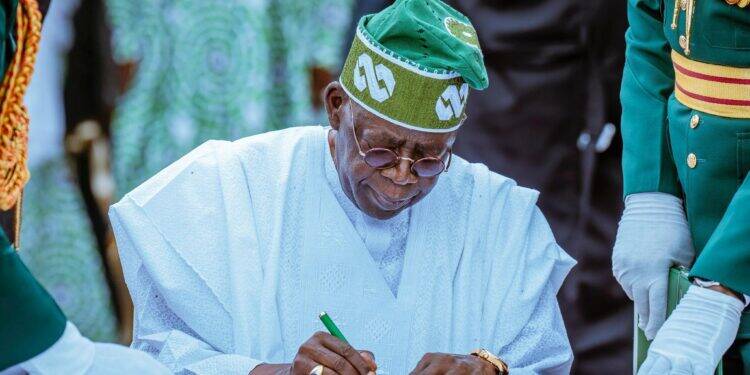Nigeria’s total public debt rose to ₦149.39 trillion by March 31, 2025, reflecting a year-on‑year jump of ₦27.72 trillion, or 22.8 percent growth.
The Debt Management Office reports debt increased from ₦121.67 trillion in Q1 2024 and from ₦144.67 trillion at end‑2024, adding ₦4.72 trillion in three months.
External debt climbed to ₦70.63 trillion—equivalent to $45.98 billion—up ₦14.61 trillion year‑on‑year, influenced by naira depreciation and higher global rates.
Quarter‑on‑quarter external borrowing rose by ₦344 billion from Q4 2024, due to lingering exchange rate pressure despite slowed fresh borrowings.
Domestic debt also surged, reaching ₦78.76 trillion in Q1 2025—an increase of ₦13.11 trillion (20 percent) year-on-year and ₦4.38 trillion (5.9 percent) since end‑2024.
The federal government holds ₦74.89 trillion of domestic debt, while state governments and the FCT account for ₦3.87 trillion—slightly lower than previous quarters.
Debt-to‑GDP now approximates 53.8 percent, nearing a critical threshold where additional borrowing may dampen economic growth, according to analysts.
Rising debt servicing costs due to the naira’s depreciation amplify fiscal strain and challenge government capacity to fund social and infrastructure programs.
Nigeria’s continued reliance on both domestic and foreign borrowings underscores urgent need for structural reforms, tax revenue expansion, and prudent fiscal management.
The DMO suggests improving ease of doing business, exchange rate stability, and regulatory clarity to attract private investment and reduce borrowing dependence.
As debt levels grow, strategic policy interventions are vital to rebalance spending, preserve macroeconomic health, and secure long‑term financial resilience.
